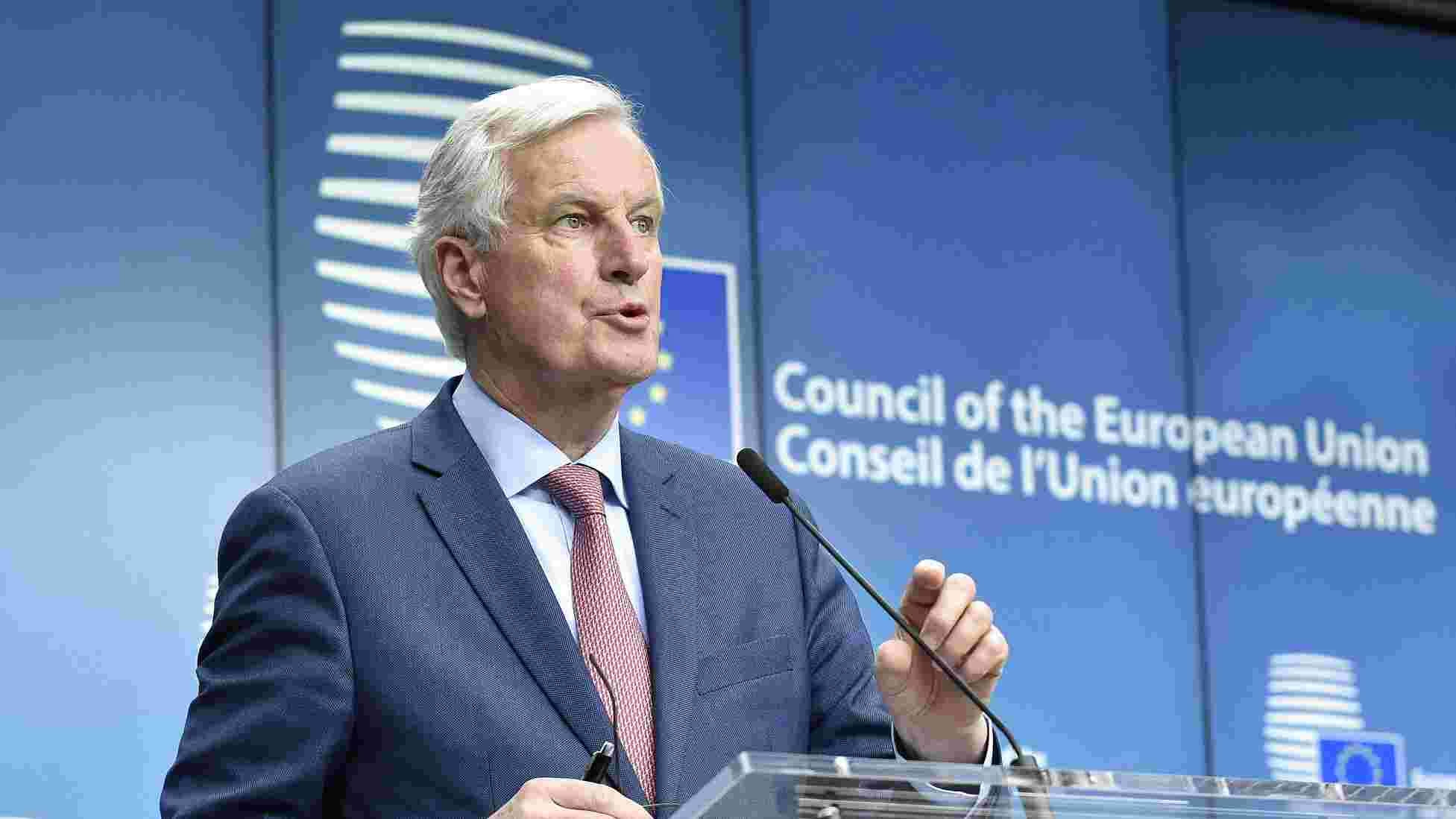
Politics
23:10, 30-Jan-2018
EU Ministers approve guidelines for Brexit negotiations
By Mariam Zaidi

It took EU Ministers just two minutes on Monday to approve their guidelines for the next round of Brexit negotiations that will focus on the UK’s post-Brexit transition period.
It was a showboat of EU unity and a stark contrast to how the British government is handling Brexit. Whilst Monday saw the EU forge ahead with their plans, British Prime Minister Theresa May was once again knee-deep in cabinet infighting.
What we know is that Dec. 31, 2020, is the date that the transition period will end. During this time, the UK will not be allowed to conclude trade deals unless approved by the EU.
Firstly, all EU rules and regulations will continue to apply to the UK. The EU says that the UK cannot enjoy all the benefits of the EU without following their rules. The EU’s goal here is to ensure that there is no unfair competition.

European Union Chief Negotiator in charge of Brexit negotiations Michel Barnier arrives for a general affairs council debate on Article 50 concerning Brexit at the EU headquarters in Brussels on January 29, 2018. /VCG Photo
European Union Chief Negotiator in charge of Brexit negotiations Michel Barnier arrives for a general affairs council debate on Article 50 concerning Brexit at the EU headquarters in Brussels on January 29, 2018. /VCG Photo
But perhaps the most contentious issue for the UK will be the EU’s insistence that during the transition, whatever new laws the EU 27 will approve, the UK will have to adopt.
Historically, the UK has enjoyed opt-outs from EU policy. Those would still continue. But come March 31, 2019, when it’s no longer a member of the European Union, it won’t have a say in the decision making process.
UK Brexit Secretary David Davis has already voiced his disapproval and will try to ensure that there is a mechanism for the UK to raise objections to laws it doesn’t want to pass.
Perhaps he can win some ground there once negotiations on the transition phase start in earnest in Brussels. But so far the UK has caved in to all EU demands.
Secondly, Michel Barnier, the EU’s Lead Negotiator speaking in Brussels on Monday warned that if there is no agreement on withdrawal issues – which are still outstanding, there will be no agreement on a transition deal. So how much wriggle room the UK has remains to be seen. But time is of the essence. Agreement on transition needs to come by March so that Phase Two of talks on the future relationship can start.
Monday’s meeting was another example of the unity with which the EU 27 are conducting Brexit. And the perceived lack of UK unity has many worried across the channel.
David Johnson, a UK-based small business owner and Chartered Financial Planner, says that “knowing little more about the UK’s impending departure from the EU other than the final deadline is a little unnerving.”
He adds that “small business owners understand that the messages emerging from both London and Brussels over the next 12 months are likely to be dispiriting, to say the least. It is clear that to secure the best deal, both sides of the Channel must give the appearance that they’re able and willing to walk away from the negotiations.

European Union Chief Negotiator in charge of Brexit negotiations Michel Barnier (L) talks with European Union Affairs, Media, Art and Culture Minister Gernot Blymel as they arrive for a general affairs council concerning Article 50 on Brexit at the EU headquarters in Brussels on January 29, 2018. /VCG Photo
European Union Chief Negotiator in charge of Brexit negotiations Michel Barnier (L) talks with European Union Affairs, Media, Art and Culture Minister Gernot Blymel as they arrive for a general affairs council concerning Article 50 on Brexit at the EU headquarters in Brussels on January 29, 2018. /VCG Photo
Many business owners I advise are reviewing their positions and making ‘no regrets’ decisions. This means making rational and prudent choices for the future. The first step is to assess your business’s potential vulnerability to Brexit. This could be in the form of exposure to foreign currencies or fluctuations in the economy.”
And those fears for what the future holds post-Brexit may only get worse. More trouble came for the UK government on Tuesday. A leaked government Brexit impact study says the UK would be worse off outside the European Union.
The study makes for grim reading. It details three post-Brexit scenarios. And even if the UK secures a trade deal with the EU and avoids falling off the cliff edge, the prognosis is that the economy would still shrink by 5 percent. Every sector and every region of the UK would be affected. London’s status as a financial center would also be impacted.
A final word too on the UK’s EU Withdrawal bill, currently being debated in the House of Lords. The mammoth piece of legislation will repeal the 1972 European Communities Act.
It seeks to ensure that all existing EU legislation will be transposed into domestic UK law to ensure a smooth transition on the day after the UK leaves the EU. But the Lords are eying dozens of amendments with some even suggesting the bill is fundamentally flawed. So more domestic problems on the horizon for the UK government.
7968km

SITEMAP
Copyright © 2018 CGTN. Beijing ICP prepared NO.16065310-3
Copyright © 2018 CGTN. Beijing ICP prepared NO.16065310-3